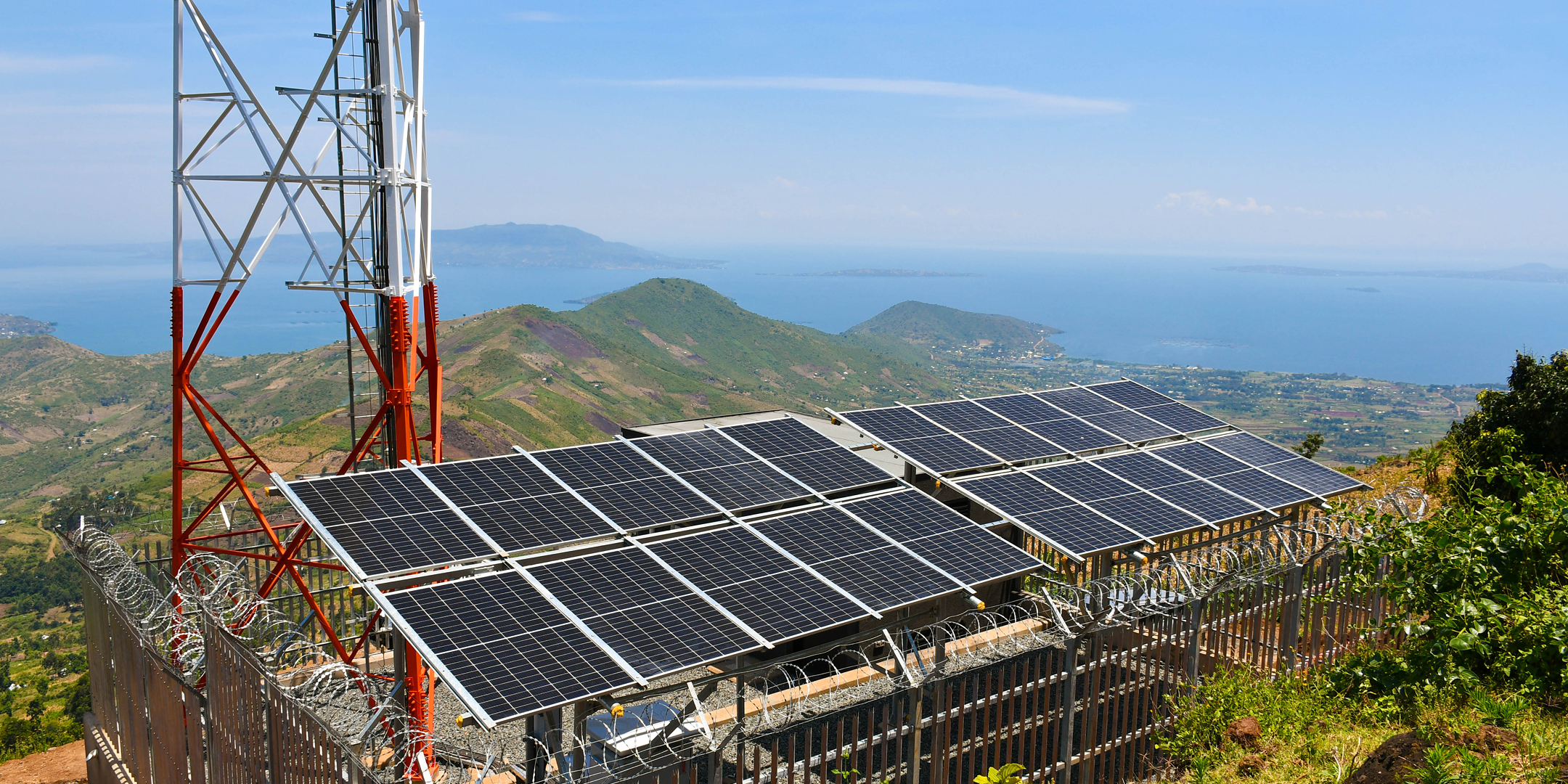Supply chain management is a high priority material topic
Supply chain management
A responsible and resilient supply chain is essential to ensuring operational efficiency, ethical sourcing, and sustainability across our markets.
We’re strengthening due diligence, enhancing ESG compliance, fostering transparency among our suppliers and embedding environmental and social standards that align with our commitment to responsible business practices and long-term growth.
Our focus areas
Enhanced due diligence
Continuously increasing the disclosures that we require of potential vendors thoughout the onboarding process and before we award contracts.
Ongoing ESG compliance
We expect all suppliers to meet the standards set out in our Code of Conduct and complete mandatory certifications. In addition, as part of our ongoing partners and suppliers' engagement programme (PSEP), we monitor the ESG standards, policies and controls that are in place across our supply chain.
GRI framework
GRI 204-1 Proportion of spending on local suppliers
GRI 308-1 New suppliers that were screened using environmental criteria
GRI 414-1 New suppliers that were screened using social criteria
GRI 407-1 Operations and suppliers in which the right to freedom of association and collective bargaining may be at risk
GRI 408-1 Operations and suppliers at significant risk for incidents of child labour
GRI 409-1 Operations and suppliers at significant risk for incidents of forced or compulsory labour
GRI 412-3 Significant investment agreements and contracts that include human rights clauses or that underwent human rights screening
Membership of the Joint Alliance for CSR (JAC)
Airtel Africa is a member of the Joint Alliance for CSR (JAC) – a global alliance of telecommunications operators committed to improving ESG standards across the international supply chains.
JAC coordinates independent, on-the-ground audits of manufacturers and key suppliers, focusing on labour practices, environmental performance, occupational health and safety as well as governance policies. Members share results and collaborate on remediation, where needed, and boosting collective impact.
- Seven of the audits were completed by JAC members covered our current suppliers. These audits included joint partners and suppliers which account for 19% of our total procurement spend.
- The audits' findings provided us with further insight into our suppliers' ESG risks and performance, enabling remediation plans to be developed, where necessary.
- We use these insights to continuously improve oversight of our suppliers and vendors' ESG practices.
Our JAC membership reinforces our commitment to ethical sourcing and transparency.
1
Our commitment to responsible procurement ensures that our suppliers meet high standards in human rights, environmental performance and ethical business practices.
2
Ramakrishna Lella
Chief supply chain officer
Our approach to supply chain management
Airtel Africa’s supply chain is vital to the delivery of our services, underpinning network performance, infrastructure and customer experience. We work with over 2,600 partners and suppliers across Africa, including original equipment manufacturers (OEMs), telecom infrastructure providers (towercos), IT service providers, logistics partners and handset suppliers. Our top 100 vendors account for 87.2% of total procurement spend, reflecting the strategic importance of these relationships.
We are committed to creating long-term, inclusive economic value across our markets. In line with this, 70% of our suppliers are local, reflecting our strong focus on empowering local business, supporting job creation and strengthening national economies. By prioritising local sourcing, we reduce our environmental footprint through shorter supply chains and contribute to building resilient and sustainable communities in Africa.
We operate a hybrid procurement model, with both Group-level and the OpCo level teams. The Group-level supply chain function is responsible for policy and governance, strategic procurement, ESG compliance and performance monitoring across our operations. Meanwhile, local supply chain teams manage day-to-day supplier engagement and contract execution in the OpCos. We also use supplier segmentation to tailor our management approaches and monitor contract KPIs via internal dashboards. Performance across delivery, cost, ESG adherence and incident reporting is also reviewed regularly.
Our supplier onboarding follows a structured due diligence process, including background checks, performance history and alignment with our Code of Business Ethics for partners and suppliers. Suppliers are onboarded via a procurement portal and are required to complete registration forms that are periodically updated. Suppliers must sign declarations of compliance with our Code of Conduct and anti-bribery and corruption (ABAC) policy every year.
As part of our firm commitment to ethical business practices, we require all suppliers to include a dedicated human rights clause into the contracts during the onboarding process. This clause outlines clear expectations regarding the respect for – and protection of – human rights across our supply chain, including prohibitions of forced labour, child labour, discrimination and unsafe working conditions. By embedding these standards into our supplier contracts, we ensure that human rights compliance is not optional but a core requirement of doing business with Airtel Africa – reinforcing our zero tolerance approach to human rights violations.
In addition to regular calls and in-person meetings, we use industry events, such as the Mobile World Congress (MWC) Barcelona and Capacity (Middle East), the largest event in the Middle East for the wider digital infrastructure community, to enhance our engagement with suppliers. This supplements our annual ESG roundtables, visits to suppliers' sites and regular audits.
Governance
Supply chain management is overseen at the Group level by the chief supply chain officer (CSCO), who reports directly to the CEO and is a member of the Executive Committee (ExCo). The CSCO provides updates to the Board of directors – at least annually – and reports regularly to the Audit and Risk Committee (ARC). The CSCO also attends the Sustainability Committee which takes place every two months.
This structure ensures alignment with our sustainability strategy and approach to risk management. Governance is anchored in a robust suite of policies, including the Code of Conduct, the Code of Business Ethics for partners and suppliers, ABAC policy, human rights policy and modern slavery statement. ESG compliance is monitored through our annual self-assessment questionnaire (SAQ) and third-party audits via our membership of the Joint Alliance for CSR (JAC).
By embedding resilience, sustainability and governance into our supply chain strategy, we’re ensuring that our operations – and those of our suppliers – remain future-ready, ethical and sustainable. Our work to enhance ESG compliance, strengthen due diligence and foster industry collaboration will remain central to our approach in the coming year.
- For more information about our policies and to download the Code of Conduct, the Code of Business Ethics for partners and suppliers, visit www.airtel.africa/supply-chain
Advancing ESG compliance and supplier engagement
This year’s ESG SAQ revealed that more suppliers are now tracking greenhouse gas (GHG) emissions and setting emissions reduction targets. However, only 23% have published formal decarbonisation strategies. Additionally, 59% of respondents confirmed that they conduct on-site energy audits and monitor energy consumption, an encouraging step towards efficiency improvements.
In terms of social responsibility, we saw improvements in workplace policies, with an increase in anti-discrimination measures and health and safety audits, which rose from 86% in 2023/24 to 89% in 2024/25. Nearly all respondents (96%) confirmed they have formal corporate policies outlining their commitment to labour, health and safety standards.
Governance structures among our suppliers have also matured, with 50% now publishing ESG reports (up from 35% in 2023/24). In addition, 54% of respondents reported having systems in place to monitor ESG performance across their supply chain, reflecting a growing commitment to responsible business practices.
Key performance indicators (KPIs)
0
breaches identified through whistleblowing mechanism
(0 in 2023/24)
75%
ESG survey response rate from the top 100 suppliers demonstrates active engagement and ongoing collaboration to improve ESG practices across our supply chain
(62% in 2023/24)
Progress update against our targets in 2024/25
We’ve made significant progress in strengthening our supply chain by enhancing due diligence, embedding environmental and social governance (ESG) compliance measures and increasing supplier accountability. Our commitment to responsible procurement ensures that suppliers meet high standards in human rights, environmental performance and ethical business practices.
To improve supplier transparency, we've introduced structured measures within our supplier engagement process, incorporating environmental and social criteria to align with our sustainability goals. Our third annual ESG SAQ, conducted in early 2025, gave over 100 of our top vendors and suppliers the opportunity to share their progress and insights with us. This assessment, comprising 60 questions across four key ESG areas, has helped identify both strengths and gaps in suppliers' sustainability practices. We had a 75% engagement rate, allowing us to better understand ESG compliance and practices across our supply chain.
Annual ESG roundtable with our top-tier partners
In February 2025, we hosted our second annual ESG roundtable with our top tier partners, focusing on decarbonisation initiatives, health and safety and the findings from our ESG SAQ. Industry leaders, including IHS Towers and America Tower Corporation (ATC), shared information about their carbon reduction strategies, while Helios Towers presented best practices in health and safety management. These knowledge-sharing sessions are instrumental in driving collective progress across our supply chain.
Enhancing supply chain resilience
Economic pressures, including currency volatility and inflation, continue to impact global supply chains. Despite these challenges, we continued to prioritise targeted capital expenditure to ensure sustained network expansion and distribution channels while optimising operational efficiency. Furthermore, we continued to increase our local procurements which now stand at 70% as of 31 March 2025, to provide us with more capacity and flexibility to continue serving customers in our challenging markets.
We’ve partnered with ATC, Helios Towers and Minara to drive solar-powered and grid-connected sites, reinforcing both sustainability and cost efficiency across our infrastructure. We also continued replacing end-of-life batteries with more advanced lithium-ion solutions, both in owned sites and in partnerships with towercos which has helped to reduce diesel dependency and lower our environmental impact.
Supply chain management in action
Partnering with ATC to deploy renewable energy solutions to towers
In November 2024, we renewed our lease agreement with American Tower Corporation (ATC), which covers 7,100 sites across Nigeria, Niger, Kenya and Uganda. This partnership isn’t just about enhancing our network – it’s about powering that growth sustainably. It supports national energy transition programmes while also demonstrating how our sustainability strategy underpins our business strategy.
Through this 12-year agreement, we'll continue to work with ATC to roll out renewable energy solutions, particularly in Nigeria, to reduce diesel dependency and operational costs. This programme supports our environmental goals and improves uptime for our customers, especially in rural areas, where reliable connectivity is vital for digital inclusion.
As of 31 March 2025, together we deployed ‘green’ solutions on 1,458 infrastructure sites.

1
ATC is united with Airtel Africa in our commitement to sustainable growth. As we expand our digital reach across the African continent, we strive to reduce GHG emmissions while driving sustainable growth.
2
Marek Busfy
SVP and CEO of ATC Africa
ESG self-assessment questionnaire (SAQ) results in 2024/25
General sustainability commitments and policies
90%
have an ESG framework or policy
96%
have a Code of Conduct or a Code of Ethics
69%
have publicly committed to sustainability through their policies or sustainability reporting
Environmental
77%
have recycling schemes and waste reduction initiatives
59%
track energy consumption and conduct on-site energy audits
45%
measure scope 1, 2 and/or 3 GHG emissions
23%
have developed and published a decarbonisation strategy or a roadmap to net zero
Social
98%
provide health and safety training to employees
98%
have policies that prohibit workplace harassment
96%
have written policies or statements of commitment on labour, health and safety standards
96%
have policies that prohibit child labour
89%
conduct annual health and safety audits
73%
invest in community development projects
50%
have a grievance mechanism for local communities in place
Governance
98%
have anti-bribery and corruption policies and procedures
93%
have data and cybersecurity systems
93%
conduct regular stakeholder engagement
54%
monitor the ESG performance of their suppliers
36%
require suppliers to publicly disclose ESG data




